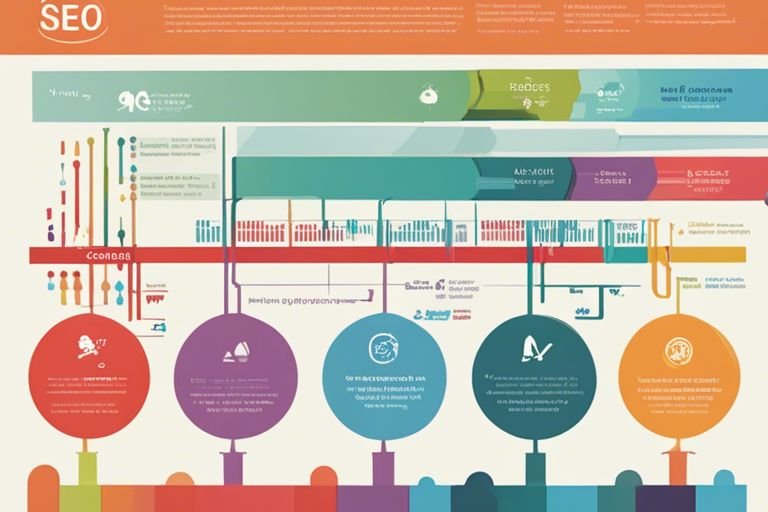Are you exploring the potential of affiliate marketing as a viable income stream? The landscape of digital marketing and business opportunities is constantly evolving, and affiliate marketing has gained significant attention as a potential source of passive income. In this blog post, we will delve into the world of affiliate marketing to provide you with a comprehensive understanding of its potential as an income stream. By the end of this post, you will have a clear understanding of the potential benefits and pitfalls of affiliate marketing, and whether it could be a viable option for you to explore as a source of income.
Affiliate marketing is a popular business model that allows individuals to earn commission by promoting products or services offered by other companies. It involves creating content, sharing unique affiliate links, and driving traffic to the products or services. If successful, you can earn a portion of the sales generated through your affiliate links. However, like any business venture, there are risks and challenges associated with affiliate marketing that you need to consider. So, let’s dive into the world of affiliate marketing and explore whether it could be a viable income stream for you.
The Evolution of Affiliate Marketing
To understand the viability of affiliate marketing as an income stream, it’s important to take a look at its evolution over the years. Understanding how affiliate marketing has changed and adapted to the ever-shifting digital landscape can provide valuable insight into its potential as a source of revenue for you.
Historical Background
To fully grasp the evolution of affiliate marketing, you need to go back to its origins. Affiliate marketing as we know it today can be traced back to the mid-1990s when the concept of revenue sharing between online merchants and website owners first emerged. This early form of affiliate marketing involved simple, text-based links that directed visitors to the merchant’s site. While this primitive form of affiliate marketing was a groundbreaking concept at the time, it lacked the sophisticated tracking and analytics tools that are available today.
Significant Changes and Trends Over the Years
Over the years, affiliate marketing has undergone significant changes and has adapted to emerging trends in the digital space. One of the most significant developments in recent years has been the shift towards influencer marketing, where individuals with a strong online presence promote products and services to their followers. This has opened up new opportunities for individuals to monetize their online platforms through affiliate marketing. Additionally, the rise of social media and the increasing focus on authentic, personal recommendations have reshaped the affiliate marketing landscape.
Another trend that has impacted affiliate marketing is the increasing importance of content quality and relevancy. Search engines and social media platforms have become more sophisticated in their algorithms, placing a higher value on authentic, valuable content. This has forced affiliate marketers to focus on creating high-quality, relevant content that provides real value to their audience, rather than simply focusing on sales pitches.
Mechanisms of Affiliate Marketing
One of the most popular forms of performance-based marketing, affiliate marketing is a revenue sharing arrangement between online merchants and website owners. Essentially, you as the affiliate assist the business in promoting its products or services, and in return, you receive a commission for the sales or leads generated through your marketing efforts.
Key Players in Affiliate Marketing
Affiliate: As the affiliate, you play a crucial role in the process. You promote products or services through various marketing channels, such as your website, social media, email marketing, or other digital platforms.
Merchant: The merchant is the business that offers the product or service. They provide you with unique tracking links or promo codes that you use to promote their products and track your sales or leads.
How Affiliate Marketing Works
When you join an affiliate program, you are given a special link that allows the merchant to track the people who clicked your link. If they make a purchase, you earn a commission. The affiliate network also plays a key role in the process by managing the relationship between the affiliate and the merchant, tracking sales and facilitating payments.
One of the most appealing aspects of affiliate marketing is that you can choose the products or services that align with your audience and promote them in a way that best suits your brand. By leveraging your platform and audience, you can effectively generate income through affiliate marketing.
Analyzing the Profitability of Affiliate Marketing
Your interest in affiliate marketing as a potential income stream is understandable, as many individuals have found success in this industry. However, it is crucial to carefully analyze the profitability of affiliate marketing before diving in. By understanding the various factors that influence earnings and learning from success stories, you can make an informed decision about whether affiliate marketing is a viable source of income for you.
Factors Influencing Earnings
When it comes to affiliate marketing, there are several key factors that can influence your earnings. These include the nature of the products or services you are promoting, the effectiveness of your marketing strategies, and the level of competition in your niche. Additionally, your ability to build and maintain relationships with your audience and the quality of the affiliate programs you choose to join will also impact your potential earnings. It’s important to note that consistency and persistence are crucial in affiliate marketing, and success often doesn’t happen overnight. However, with dedication and strategic planning, you can maximize your earning potential in this industry.
Affiliate Marketing Success Stories
One way to gain insight into the potential profitability of affiliate marketing is to learn from success stories within the industry. Many individuals have achieved significant financial success through affiliate marketing, and their experiences can provide valuable lessons for others. By studying real-life examples of successful affiliate marketers, you can gain a better understanding of the strategies and tactics that work, as well as the pitfalls to avoid. It’s important to remember that every success story is unique, and there is no one-size-fits-all formula for achieving success in affiliate marketing. However, gaining inspiration from those who have achieved their financial goals through affiliate marketing can motivate you to pursue your own success in this industry.
Risks and Challenges in Affiliate Marketing
Now, let’s talk about some of the risks and challenges you may face in the world of affiliate marketing. While it can be a lucrative income stream, it’s important to be aware of the potential obstacles that could impact your success.
Competition and Market Saturation
One of the biggest challenges in affiliate marketing is the level of competition and market saturation. With so many individuals and businesses vying for the attention of consumers, it can be difficult to stand out and make your affiliate links and recommendations heard. This can lead to increased difficulty in generating traffic and ultimately converting that traffic into sales. It’s crucial to find a niche within the market that isn’t oversaturated and to continually find ways to differentiate yourself from the competition.
Dealing with Changes in Search Engine Algorithms
Another challenge you may encounter in affiliate marketing is the ever-changing landscape of search engine algorithms. As search engines like Google continually update and refine their algorithms, it can impact the visibility of your affiliate content. Fluctuations in search engine rankings can directly affect your ability to drive traffic to your affiliate links and ultimately earn commissions. It’s essential to stay abreast of these changes and adjust your strategies accordingly to maintain your online visibility and traffic.
Adherence to Legal Requirements and Regulations
Additionally, when engaging in affiliate marketing, you must navigate the complex landscape of legal requirements and regulations. This includes disclosure guidelines, consumer protection laws, and compliance with the terms and conditions of affiliate programs. Failure to adhere to these legal requirements can result in potential legal consequences and damage to your reputation. Ensuring that you are transparent and compliant with all legal regulations is vital to sustaining a successful and ethical affiliate marketing business.

Strategies for Success in Affiliate Marketing
Keep in mind that affiliate marketing is a competitive field that requires strategic planning and execution. To succeed in affiliate marketing, you need to employ a variety of strategies to maximize your earning potential and stand out in a crowded marketplace. Here are some key strategies to help you succeed in affiliate marketing.
Selecting the Right Products and Services to Promote
When it comes to affiliate marketing, choosing the right products and services to promote is crucial. You want to select products and services that are relevant to your target audience and align with your brand. Additionally, you should consider the quality, reputation, and demand for the products and services you choose to promote. It’s important to only promote products and services that you believe in and that provide value to your audience. By focusing on quality over quantity, you can build trust with your audience and increase your chances of earning repeat customers and recurring commissions.
Building Authority and Credibility
Building authority and credibility in your chosen niche is essential for success in affiliate marketing. You need to establish yourself as an expert in your field and build trust with your audience. Share valuable content, provide in-depth product reviews, and engage with your audience through various channels such as a blog, social media, and email marketing. By positioning yourself as a trusted source of information and recommendations, you can increase your conversion rates and establish long-term relationships with your audience.
Utilizing Multiple Traffic Sources
To maximize your earning potential in affiliate marketing, you should diversify your traffic sources. Relying solely on one traffic source can be risky, especially if that source changes its algorithm or policies. By utilizing multiple traffic sources such as organic search, social media, email marketing, and paid advertising, you can reach a broader audience and reduce your dependency on any single source. This not only helps you mitigate risks but also allows you to capitalize on different audience segments and behaviors.
Affiliate Marketing Tools and Resources
Despite the potential for high income, affiliate marketing requires the right tools and resources to be successful. These resources will help you track your marketing efforts, optimize your campaigns, and stay ahead of the industry trends. It’s essential to invest in the right software and continuously improve your skills to ensure a viable income stream from affiliate marketing.
Essential Affiliate Marketing Software
One of the most important tools for affiliate marketers is tracking software. This allows you to monitor the performance of your campaigns, track sales, and optimize your marketing efforts. Additionally, you will need keyword research tools to identify profitable niches and keywords to target. Email marketing platforms are also crucial for building and nurturing your audience. Finally, investing in a good website hosting and design platform will allow you to create a professional and effective website to promote your affiliate offers.
Continuous Learning and Skill Development
Continuous learning and skill development are essential for staying competitive in the affiliate marketing industry. You should invest in educational resources such as online courses, webinars, and industry conferences to stay updated with the latest marketing strategies and trends. Additionally, developing skills in copywriting, SEO, and data analysis will help you optimize your campaigns and maximize your income potential. Remember, the affiliate marketing landscape is always evolving, so staying ahead of the curve is crucial to your success.
Conclusion
On the whole, affiliate marketing can indeed be a viable income stream for you. With the right strategies, dedication, and effort, you can build a successful affiliate marketing business and generate a steady stream of income. It offers a flexible and potentially lucrative way to earn money by promoting products and services that align with your interests and expertise. However, it’s important to approach affiliate marketing with realistic expectations and a willingness to put in the necessary work to see results.
Keep in mind that affiliate marketing requires continuous learning and adaptation to stay ahead in the ever-evolving digital landscape. By staying informed about industry trends, optimizing your marketing efforts, and building strong relationships with your audience and partners, you can increase the likelihood of finding success in this income stream. Overall, with the right approach, dedication, and persistence, affiliate marketing can be a viable and rewarding way to earn income.








